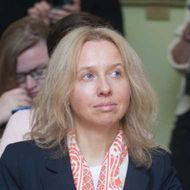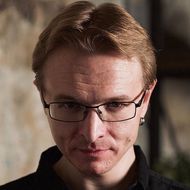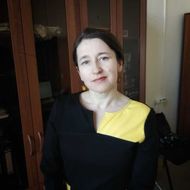- A
- A
- A
- ABC
- ABC
- ABC
- А
- А
- А
- А
- А
- HSE University
- Faculties
- Faculty of Humanities
- School of History
- News
- Igor Fedyukin, Director of the Centre for Source Studies, Spoke at Conferences in Florence and Lyon
105066 Moscow, Staraya Basmannaya 21/4, building 3
Phone: +7 (495) 772 95 90 *22858
The HSE School of History was established in 2015 on the basis of the HSE faculty of history. The School's staff brings together leading scientists in various fields of historical knowledge who are widely known and respected in Russia and the international academic community. The School’s instructors are leading historians are authors of numerous books and articles, regular participants in major international scientific forums and research projects, and are also known as popularizers of historical knowledge. The HSE School of History actively cooperates with leading foreign universities and research centers, and organizes international scientific conferences, symposia, and colloquiums.
 Russian Faith, Honour, & Courage Displayed in a Faithfull Narrative of the Russian Expedition by Sea (1769 & 1770)
Russian Faith, Honour, & Courage Displayed in a Faithfull Narrative of the Russian Expedition by Sea (1769 & 1770)
Leikin J., Elena Smilianskaia.
NY: Boydell and Brewer Ltd, 2024.
Russian Review. 2025. Vol. 84. No. 1. P. 88-102.
Sergey V. Kostelyanets.
In bk.: BRICS and Climate Change: Balancing National Interests, National Development Goals and Global Environmental Sustainability. Singapore: Springer, 2024. Ch. 3. P. 67-96.
Kolesnik A., Rusanov A.
Working Papers of Humanities. WP. Издательский дом НИУ ВШЭ, 2021. No. 205.

Igor Fedyukin, Director of the Centre for Source Studies, Spoke at Conferences in Florence and Lyon
The study looks at the role of administrative entrepreneurs – ‘idealists’ in borrowing, adjusting, and assimilating new organizational forms and practices in education in 1700s – 1730s. It also suggests a typology of administrative entrepreneurship. Through the example of Baron de Saint-Hilaire and the Naval Academy, which was founded in 1715 in St. Petersburg, the author demonstrates the interweaving and collision between the interests of the monarch, the ‘idealist’ and his competitors, as well as the influence of ‘idealist’ strategies on the final appearance of the new school.
- About
- About
- Key Figures & Facts
- Sustainability at HSE University
- Faculties & Departments
- International Partnerships
- Faculty & Staff
- HSE Buildings
- Public Enquiries
- Studies
- Admissions
- Programme Catalogue
- Undergraduate
- Graduate
- Exchange Programmes
- Summer Schools
- Semester in Moscow
- Business Internship
-
https://elearning.hse.ru/en/mooc/
Massive Open Online Courses
-
https://www.hse.ru/en/visual/
HSE Site for the Visually Impaired
-
http://5top100.com/
Russian Academic Excellence Project 5-100
- © HSE University 1993–2025 Contacts Copyright Privacy Policy Site Map
- Edit



